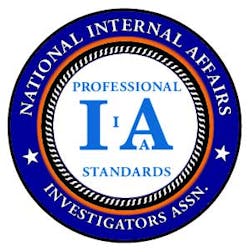United States v. Apfelbaum
One of many tools used in the investigation of internal matters is that of immunity. Governmental employees are given immunity by the employer under the Garrity warning. Employees are told and it has been upheld that anything they say while under the Garrity warning can not be used in a criminal trial against them. So, what if an employee, or any person given immunity, were to lie while being afforded immunity? United States v. Apfelbaum gives the answer to this question.
Apfelbaum was being questioned before a grand jury in the 3rd United States District regarding his participation in a reported armed robbery of a car dealership in Philadelphia. Two officials of the dealership had staged the robbery in order to pay debts to loan sharks. At the time, Apfelbaum was an administrative assistant to the district attorney in Philadelphia. He was called before the grand jury on information that he aided or abetted after the fact in the false robbery.
When questioned about his relationship with the two subjects of the investigation, he claimed his Fifth Amendment privilege against compulsory self-incrimination and would not testify. The attorney entered an order under 18 USC 6002, allowing Apfelbaum immunity and compelling him to testify.
Title 18 USC § 6002 provides: Whenever a witness refuses, on the basis of his privilege against self-incrimination, to testify or provide other information in a proceeding before or ancillary to
- a court or grand jury of the United States,
- an agency of the United States, or
- either House of Congress, a joint committee of the two Houses, or a committee or a subcommittee of either House,
and the person presiding over the proceeding communicates to the witness an order issued under this part, the witness may not refuse to comply with the order on the basis of his privilege against self-incrimination; but no testimony or other information compelled under the order (or any information directly or indirectly derived from such testimony or other information) may be used against the witness in any criminal case, except a prosecution for perjury, giving a false statement, or otherwise failing to comply with the order.
After the issuance of the immunity order, respondent had still refused to testify before the grand jury. He agreed to testify after being held in civil contempt under 28 USC § 1826 and confined for six days.
When he testified, he gave two series of statements which were used for the indictment and conviction for false swearing. The first was regarding his attempts to locate one of the suspects while on a fishing trip to Ft. Lauderdale. The second was a statement made to a FBI agent, denying he loaned the suspect $10,000. He was indicted for making statements which knew were false.
When taken to trial, the prosecution introduced into evidence other portions of his testimony that put the false statements into context, to prove he knew they were false. Apfelbaum objected to the use of all statements made under immunity, except those that he was charged with. The court ruled in favor of the prosecution that the statements were relevant to prove Apfelbaum had made false statements. Apfelbaum was convicted on both charges.
Apfelbaum appealed on the premise that only the false statements should have been admitted into evidence. On certiorari, the Supreme Court held that the Fifth Amendment allows a witness to remain silent, but not to swear falsely during immunized statements. However, it creates an exemption against the use of the entire testimony for which the defendant is charged and prosecuted for making the false statements. It allows the use of the truthful statements and the false statements to be used in consideration of the evidence. Justice Brennan, concurring in the judgment, stated:
The Fifth Amendment guarantees the right to be free from compulsory self-incrimination. It permits an individual to refuse to answer questions; but it does not give him the right to answer falsely.
This carries over to the Garrity warning, in that once a governmental employee is given immunity, they must be truthful. Furthermore, any false statement made during the interview can be grounds for prosecution for giving a false statement. In fairness, discussion of truthfulness would be suggested in training with line officers. An officer should be aware of the pitfalls of giving statements to internal affairs and the consequences of their actions should they not adhere to the law.
